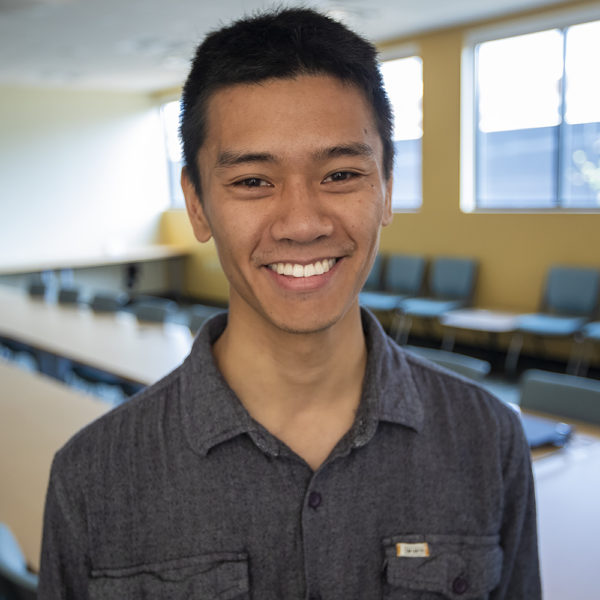Advertisement
Coronavirus Coverage
In The Isolation Dorm: Doubts, Fears And Tedium When A Boston Student Tests Positive
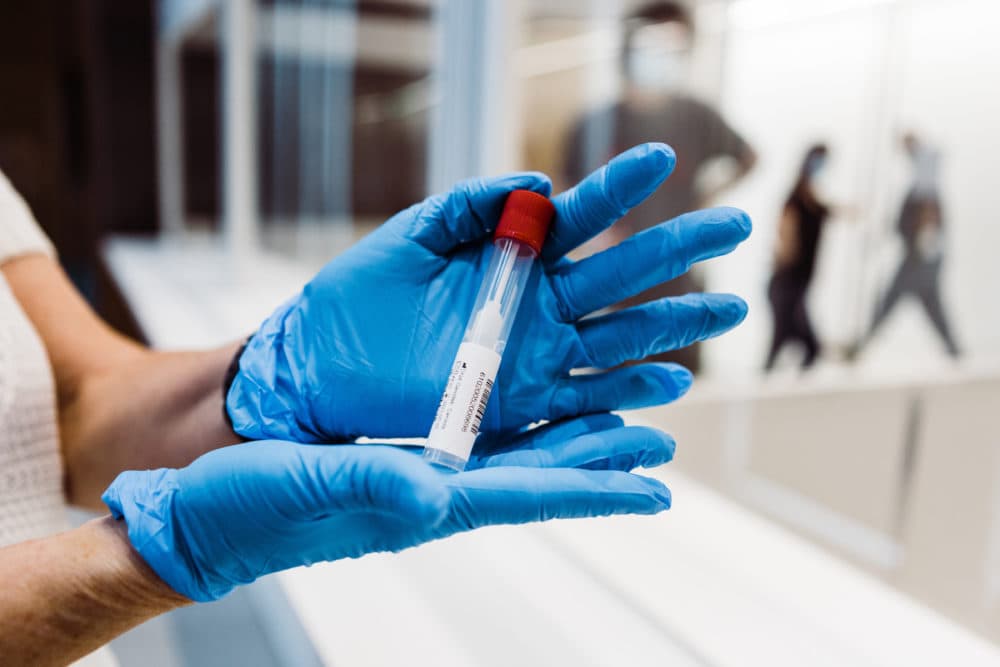
On her first morning back on campus, Clarice puts on a hot air balloon-print face mask and heads to the coronavirus testing center at the life sciences and engineering building. She steps into a testing stall, and an attendant watches as she twirls a swab in each nostril five times, then slides it into a collection vial.
If the test comes back positive, Clarice will have to isolate in a designated coronavirus dorm or head off campus. If she had refused to test at all, access to university facilities would have been cut off. But so far, she's doing everything right. A virtual status card on her smartphone turns green, clearing her for campus buildings like a passport.
Coming back to school this year is a soup of emotion, says Clarice, an undergraduate at Boston University. Nobody wants to get COVID-19, and being at college with thousands of other students isn’t the best way to avoid the coronavirus.
“Of course I’m nervous, like I think anyone who has ever seen a headline would be a little worried,” she says. But still – “I missed Boston,” she adds wistfully. “I’m excited to be back.”
The new ritual of getting coronavirus tests twice a week is already starting to drag, though. The swab itself isn’t so bad (“Super easy,” Clarice says. “It's very fluffy.”) The issue is the waiting. Test results usually come back within a day or two, but Clarice says it’s nerve-wracking wondering if today will be the day she finds out she has the coronavirus.
“There’s always that fear that’s like, what if it comes back and it’s positive?” she says.
The first week, Clarice moves back into her on-campus apartment, and she and her roommates get only good news. All three have tested negative, and it’s like a weight lifts off their shoulders.
“I did feel like a big wave of relief,” says Nabil, one of Clarice’s roommates.
Nabil says they’d all been careful coming back to school. She even took the extra step of wearing an N95 mask in the apartment. None of them have gone to meet friends or exchanged hugs.
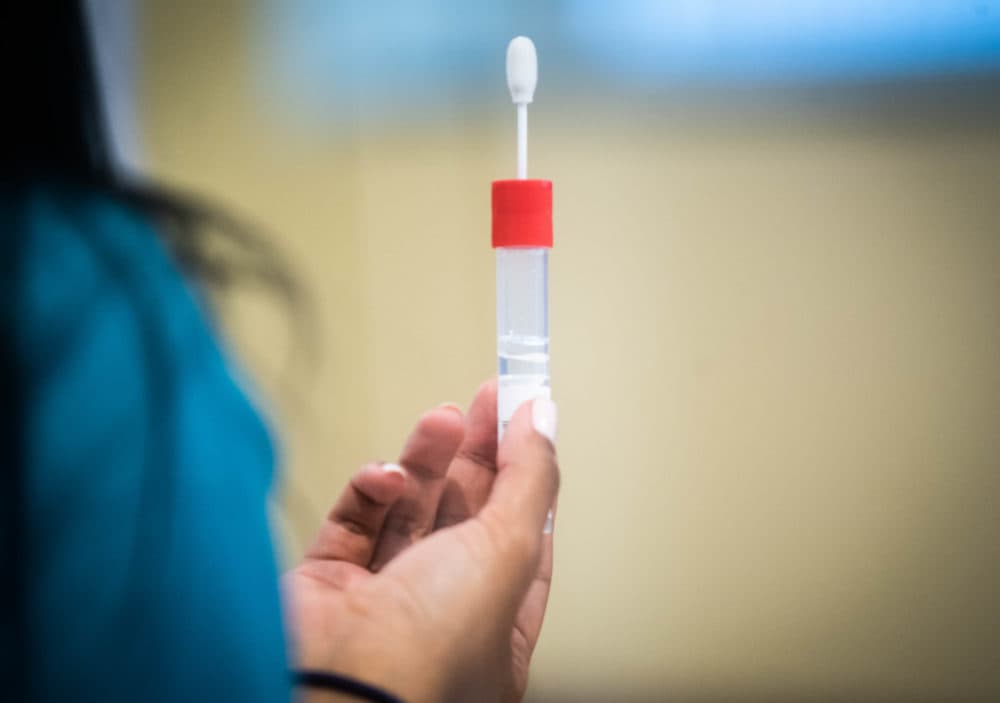
But then, on the day of her second coronavirus test, the cellphone rings. It’s Boston University.
“I got really nervous while I was answering it,” Nabil says.
On the other end of the line, someone from student health services tells her she tested positive and starts explaining the next steps.
“I was just very shocked and confused, especially since I thought I was being very safe through my three days at BU. I called my mom, and I burst into tears,” she says. “And then I called my roommates. I can’t really remember the conversation; I sort of just broke down crying.”
“We didn’t say anything,” Clarice recalls. “She was just like, 'I tested positive.’ And the only store she’d been in [was] Whole Foods. We were really surprised and like really, really scared. Like it’s really scary to know you might have COVID.” (The students asked us to use only their middle names in this story for fear the diagnosis could lead to stigma.)
Advertisement
The rest of the evening is something of a blur. They all start packing. Because of their close contact, Clarice and their other roommate have to quarantine for two weeks in a separate dorm, while Nabil goes to an isolation facility. They all begin obsessively self-examining, looking for respiratory symptoms, and one gets a headache. In an hour, an ambulance arrives to take Nabil to BU’s designated isolation dorm.
“Which was very flashy,” she says. “We sort of knew the drill that if I was going into isolation, they would have to go to quarantine.”
When they get to their temporary rooms, everything is bare except for desks, beds and chairs. There aren’t any posters or photos tacked to the walls or strings of lights draped around the bed frames. Everything is clean and sterile. The students have to find their rooms on their own. Nobody walks them in or guides them through a check-in process. They are alone.
“Everything’s very no-contact. I was basically dropped off, which is obviously understandable,” Nabil says. “But it’s a very weird experience. I might have brought something as simple as a picture frame – something that sort of reminds you of home, so the space doesn’t seem so scary, if that makes sense.”
And a pillow, she adds. The ones in the isolation dorms aren’t very comfortable.
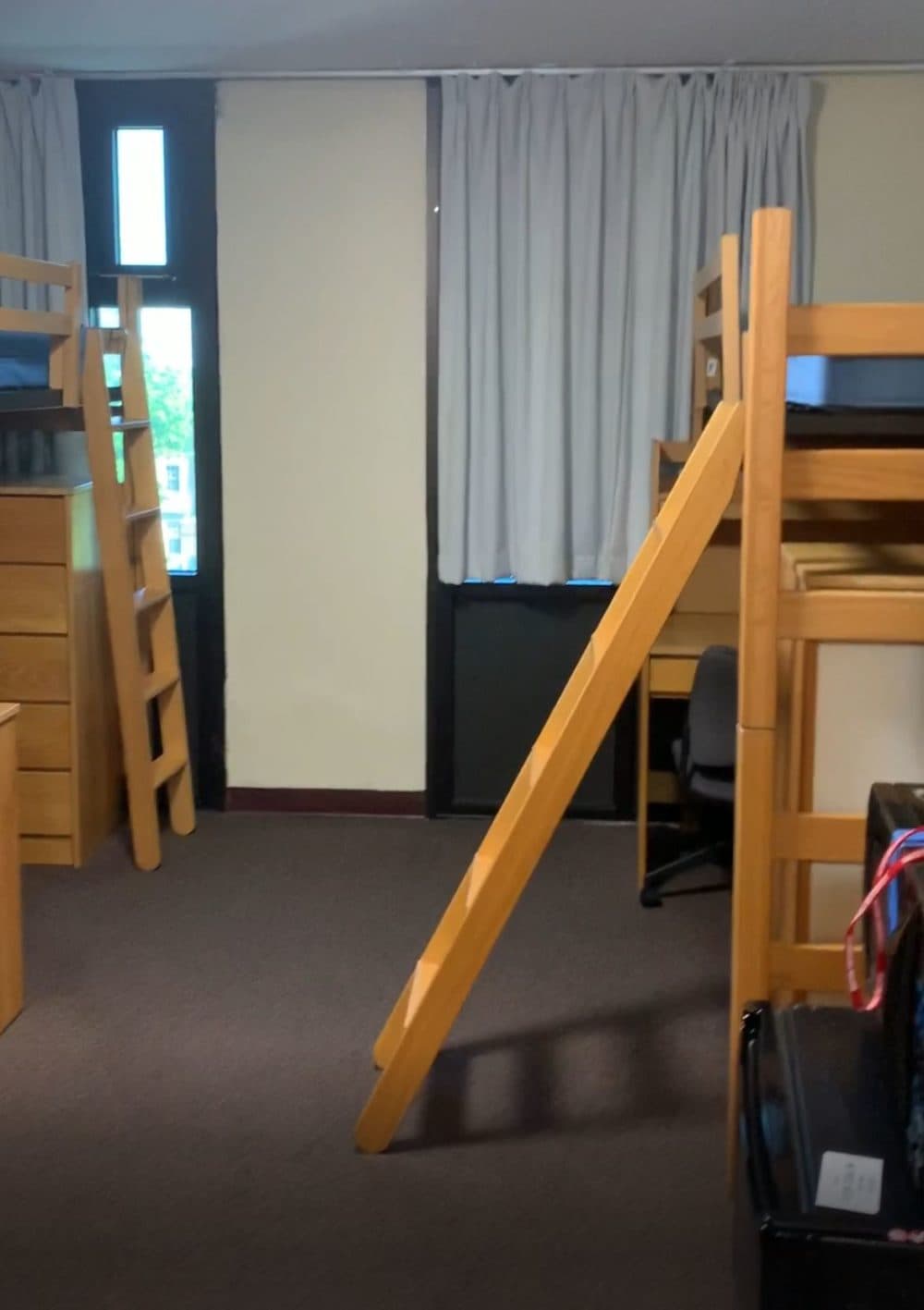
With little to do, Nabil watches TV and prepares for classes to start. Sometimes, she fixates on how she got the coronavirus. Was it the mail she picked up without washing her hands? Or the Whole Foods trip? And if she hadn’t done those things, or had just been a little more careful, she thinks, maybe she might have avoided inadvertently putting her friends in danger.
She knows she’ll never get those answers and that it isn’t her fault she contracted the coronavirus, but it doesn’t stop her from wondering.
“You do have plenty of time to think, especially since school hasn’t started. It’s been pretty taxing on my mental health,” she says. “All you can think about is, you know, am I sick? Will I be sick? Will my roommates get sick?”
Every day, someone from student health or an assistant dean calls to check on the students. There’s plenty of food and fresh linens in the dorms, and people drop off frozen, prepared meals outside their doors. Nabil video chats with her friends and family from time to time, and she also schedules an appointment with a university mental health counselor. But, she says, it’s still pretty lonely.
“Sometimes I get to the point where I just feel like I’m watching the clock go by, waiting for it to get later in the evening so I could go to bed,” she says. “It feels like I’ve been transported back to March when we first started [the pandemic.]”
So far, this is an experience that few share at Boston University and other Massachusetts colleges. A total of 55 students have tested positive at BU - out of more than 41,000 tests performed - and, as of last month, only two out of 2,000 people tested have turned up positive at Tufts University. Local residents aren’t so sure that things will stay that way, though.
“There’s a lot of concern when you’re adding five to six thousand people to our general area,” says Marianne Walles, a 54-year-old who’s lived in Somerville for most of her life. “I’m very nervous – because those risks were already there, and I just feel like those risks have now been heightened.”
Walles says she believes many students will be as well-behaved as Clarice and her roommates – but it only takes one "superspreading" event to change the COVID-19 landscape, and send the coronavirus rippling through a community. Mainly, though, she says she just doesn’t feel confident about local universities’ ability to manage outbreaks since she feels many haven’t been very clear about their plans.
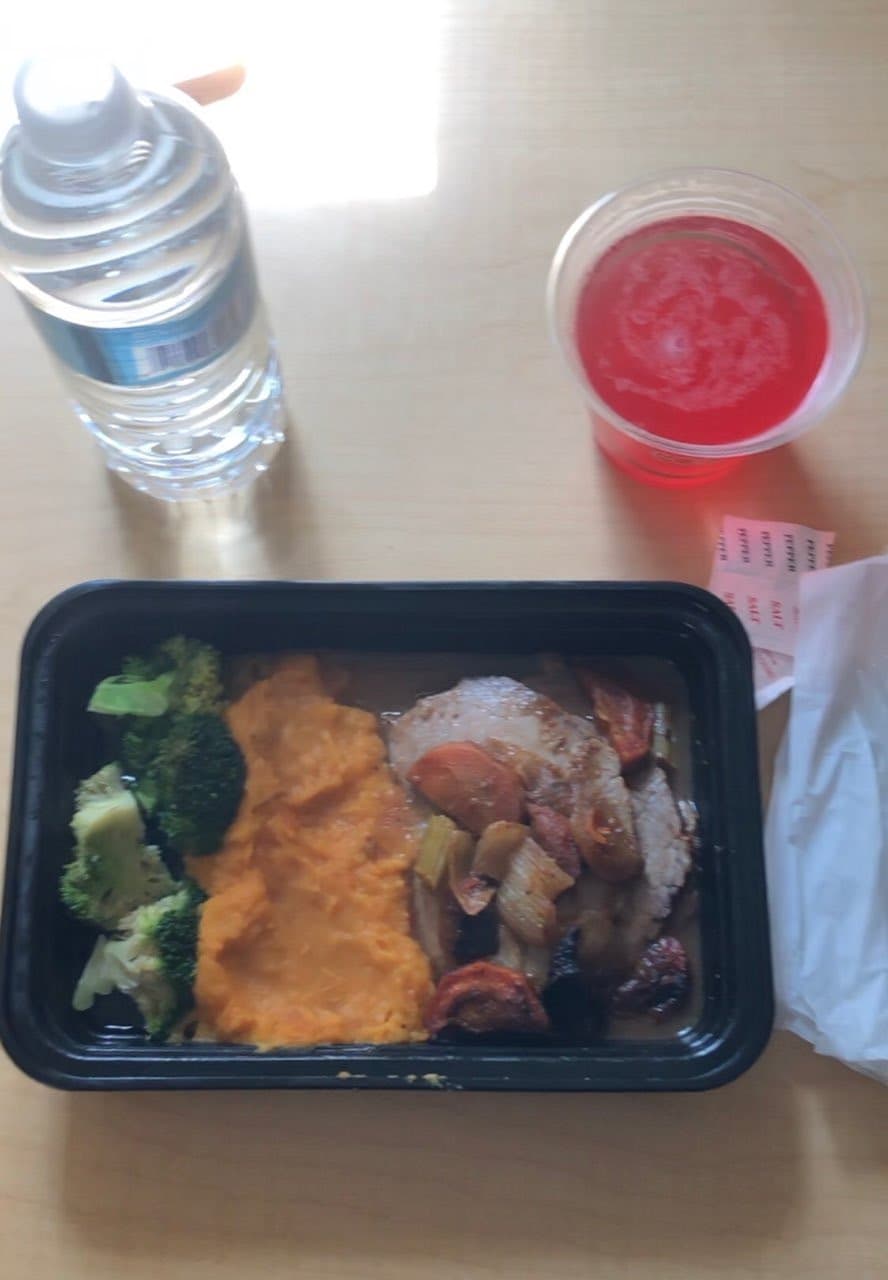
Like BU, Tufts University is using regular, mandatory testing for all students, staff and faculty. Everyone must also fill out an online symptom survey every day they come to campus. If they don’t, Tufts President Dr. Anthony Monaco says, they simply won’t be let into any campus facilities.
Other COVID-19 precautions students have been instructed to follow include wearing a mask whenever they leave home, washing their hands, no overnight guests and – of course – no parties. While no one can force them to follow these rules at all times, or watch them every second, Monaco says breaking the rules can have serious consequences, depending on the infraction.
“A large off-campus party,” Monaco says. “Well, that would be grounds for suspension or expulsion because the health impact of something like that is very large.”
With tens of thousands of university students living in and around Boston, many in off-campus apartments, universities are relying to a large degree on their own students to follow the rules and enforce them with each other.
“Hopefully peer pressure, good peer pressure, to keep everyone safe will help the compliance enormously,” Monaco says.
That might help more students toe the line, but it also makes the experience of getting the coronavirus more stressful for Nabil. She feels there’s a stigma – like she must have done something wrong or recklessly endangered others.
“I feel like if you say, 'I went to college, and I got coronavirus,' people would assume I stepped foot on campus and went out partying,” she says. “So, I’ve definitely been worried about what people would think of me.”
Throughout her 10 days in isolation, neither she nor any of her roommates developed symptoms. Clarice and their other roommate continued to test negative in quarantine. On her last day in isolation, a nurse calls in the morning and does a symptom check – then tells her that she’s free to leave the isolation dorm. Freedom, she says, is the sweetest thing.
“Feels really good,” Nabil says. “I was literally stuck in the room for 10 days. So it's nice to feel the outside air when I got out.”
Her roommates will have to remain in quarantine for four more days before they can join her.
Nabil says she’s even more careful than she was before, though. She’s washing her hands a little more thoroughly, and she’s not sure if she’ll even attend in-person classes next week, opting to join them online. She might be immune now but, then again, she might not be, she says. After this experience, she doesn’t want to take any chances.
This segment aired on September 3, 2020.
